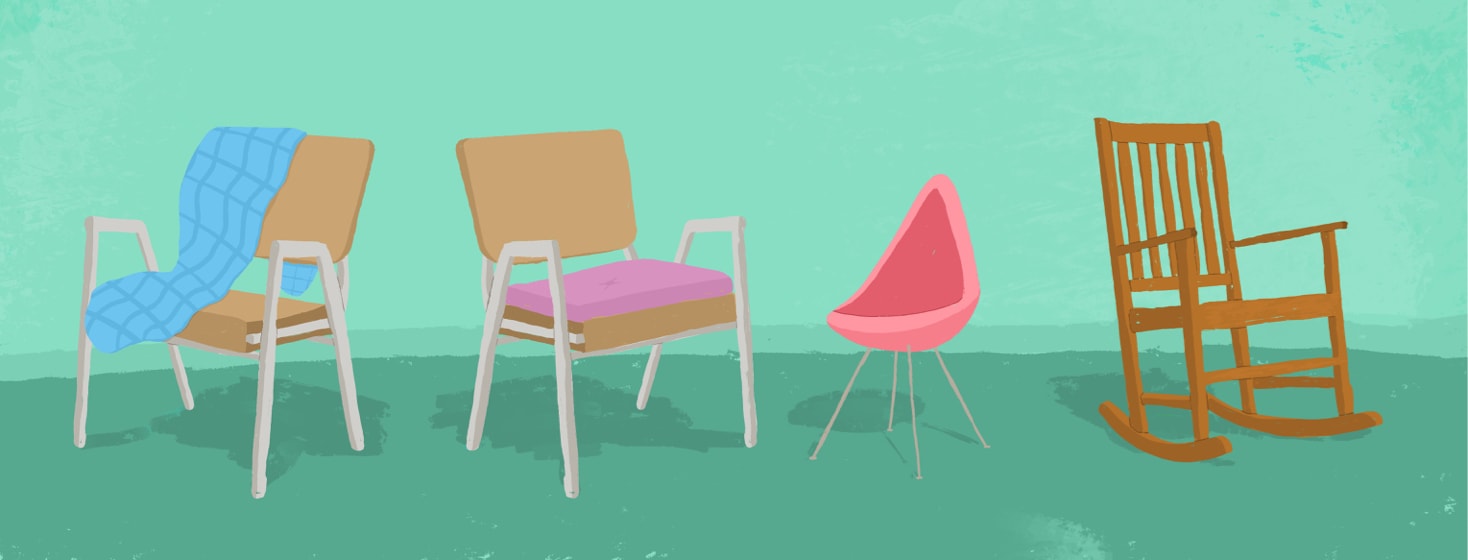The Youngest in the Room
As I sit in the waiting room of my cancer center, I look around and see the chairs spaced a perfect six feet apart. There are no visitors, and everyone’s faces are half-hidden by masks. More than the change in optics due to the COVID-19 pandemic, there is one thing that stands out every single time I walk into the center. Me.
Feeling out of place in the waiting room
I am the youngest person in the room by almost twenty years. All around me are patients older than even my parents. Some are in wheelchairs, some connected to oxygen tanks, the vast majority are in caps covering bare heads. Here I sit in a bright sundress, a head of hair, playing video games on a handheld device. Pre-COVID, I was actually mistaken as my mother’s caregiver constantly when she would accompany me to appointments. More than once, I get a double-take from both nurses and my fellow patients.
Bladder cancer in your 20s
That’s what happens when you have cancer in your 20s. Although I hear about and am friends with many other cancer patients my age, we never seem to all be in the same room together. Then we need to layer in my diagnosis. Being diagnosed with stage IV metastatic bladder cancer at 28 immediately put me in the category of some of the youngest people to have the disease. I am, and for many years to come will be, the oddball in the room.
My concerns, questions, and needs are different
Being so young with what is often deemed an “old man’s” disease can make for an interesting cancer experience. My team had to get creative with my treatment options because we wanted to not only extend my life but maintain quality. It wasn’t until I got a female oncologist on my team that I finally got answers about what the hysterectomy part of my surgery meant for my hormones and sexual health. Support groups are full of men and women the same age as my grandparents. My concerns, questions, and needs are drastically different from the predominantly male bladder cancer population and still vary greatly from the women who are much older than me with this disease.
Maintaining my quality of life
When I was diagnosed, I immediately wanted to know when I could go back to work, when I could start working out again, and how could I make my ostomy suit my fashion sense. Instead of an adult child being my navigator, my mom is usually the one tagging along to appointments and scans. I’ve had to give up the notion of ever having my own biological children and at 29 years old, I am facing the reality that my diagnosis has shortened my life span.
I wish I could meet another young woman with advanced bladder cancer
I wish I could find another woman my age with the same cancer as me. Just to have someone at the same place in life as me who could understand my fears, my frustrations and just understand what it feels like to be under 30 with bladder cancer. I hunted social media high and low to even find any young women with a urostomy, but it seems like I stand quite alone in that category as well.
A fight to find support
Navigating through cancer as the youngest in the room is at best an interesting experience. At worst, it has been a fight to find support and care that matches my needs. For now, I try to take it in stride and make friends with my older and wiser fellow cancer mates at the center.

Join the conversation